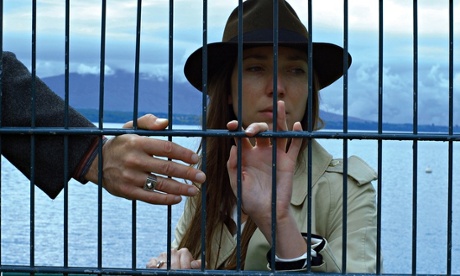
Jean-Luc Godard, the French-Swiss director who was a key figure in the Nouvelle Vague, the film-making movement that revolutionised cinema in the late 1950s and 60s, has died aged 91. French news agency AFP reported that he died “peacefully at home” in Switzerland with his wife Anne-Marie Mieville at his side. Liberation, quoting an unnamed family member, reported that Godard’s death was assisted, which is legal in Switzerland. “He was not sick, he was simply exhausted. So he had made the decision to end it. It was his decision and it was important for him that it be known.” Godard’s lawyer Patrick Jeanneret told AFP Godard’s death followed “multiple disabling pathologies”.
Best known for his iconoclastic, seemingly improvised filming style, as well as unbending radicalism, Godard made his mark with a series of increasingly politicised films in the 1960s, before enjoying an unlikely career revival in recent years, with films such as Film Socialisme and Goodbye to Language as he experimented with digital technology.
The French president Emmanuel Macron tweeted: “We’ve lost a national treasure, the eye of a genius”. He said Godard was a “master” of cinema – “the most iconoclastic of the Nouvelle Vague”.
Film-makers who paid tribute included Last Night in Soho director Edgar Wright, who called him “one of the most influential, iconoclastic film-makers of them all”.
Born in Paris in 1930, Godard grew up and went to school in Nyon, on the banks of Lake Geneva in Switzerland. After moving back to Paris after finishing school in 1949, Godard found a natural habitat in the intellectual “cine-clubs” that flourished in the French capital after the war, and proved the crucible of the French New Wave. Having met the likes of critic André Bazin and future fellow directors François Truffaut, Claude Chabrol and Jacques Rivette, Godard began writing for the new film magazines, including Bazin’s soon-to-be-influential Cahiers du Cinema. Godard struck a maverick note from the start, defending traditional Hollywood film-making and promoting the likes of Howard Hawks and Otto Preminger over more fashionable figures. Godard also had a reverence for Humphrey Bogart, something that would come out in his first feature, Breathless, which he released in 1960.
Before that, however, Godard eased his way into film-making via a series of short films, such as Charlotte and Véronique, or All the Boys Are Named Patrick in 1957, which prefigured his loose, apparently slipshod film-making style. An earlier idea of Truffaut’s, about a petty criminal and his girlfriend, had been abandoned, but Godard thought he could turn it into a feature, and asked for permission to use it. Truffaut, meanwhile, had scored a major success with his own feature, The 400 Blows, and his clout helped Godard get his project off the ground. Shot on the Paris streets in 1959, with negligible use of artificial lighting, and a script written day-to-day, Breathless turned into a bona fide cultural phenomenon on its release, making a star of Jean-Paul Belmondo and winning Godard best director at the Berlin film festival.
Godard went on to make a string of seminal films in the 1960s at a furious rate. His next film, Le Petit Soldat, suggested the French government condoned torture, and it was banned until 1963, but it was also the film on which Godard met his future wife, Anna Karina, as well as coining his most famous aphorism, “Cinema is truth at 24 frames a second.” Other highlights included A Woman Is a Woman, a self-referential homage to the Hollywood musical, which again starred Karina, along with Belmondo and won more Berlin awards; the extravagant, epic film-about-film-making Contempt, with Michel Piccoli, Brigitte Bardot, Jack Palance and Fritz Lang; and Alphaville, a bizarre hybrid of film noir and science fiction.
By 1965 Godard’s marriage with Karina had ended in divorce; their last feature together was Made in USA, a homage to American pulp fiction that ran into copyright trouble in the US. By this time Godard was also thoroughly identified with the revolutionary politics of the age, and his film-making reflected this: he set up a film-making collective named after Dziga Vertov, the Soviet director of Man with a Movie Camera, helped to shut down the Cannes film festival in 1968 in sympathy with the student riots in Paris, and collaborated with young Marxist student Jean-Pierre Gorin on Tout Va Bien, a study of a strike in a sausage factory featuring Jane Fonda.
Godard also met, in 1970, film-maker Anne-Marie Miéville who would become a regular collaborator, and later partner after the breakdown of his second marriage, to Anne Wiazemsky, who had starred in Godard’s 1967 study of student radicals, La Chinoise.

As the 70s moved on, Godard’s strident political and intellectual stances began to lose their cachet, and his work reduced in impact in the 1980s – though, improbably, his 1987 film of King Lear, reconfigured as a post-apocalyptic farce featuring a gangster called Learo, was financed by action specialists Cannon Films.
His 2001 feature In Praise of Love marked a comeback, being selected for the Cannes film festival, while the release of Film Socialisme in 2010 preceded the award in 2010 of an honorary Oscar (the citation read: “For passion. For confrontation. For a new kind of cinema”). Typically, Godard failed to collect it in person. His 2014 film Goodbye to Language saw him pick up a major film-making award, the jury prize at Cannes, and Image Book, which was selected for the 2018 Cannes film festival, was given a one-off “special Palme d’Or”.







